 A Journey Chronicled in Culinary Art Tazin Abdullah The story of Wajiullah Spiby, the first Bangladeshi to be adopted by an Australian family.
“32 years ago, I needed a job …. I didn’t say anything,” reflects Wajiullah Spiby, now one of Tasmania’s most celebrated chefs. His catering business, Waji Food in Hobart, boasts an impressive and creative menu culminating from 30 years of cooking and travelling around the world. It was, in fact, a plane ride from one world to another, at the age of seven, that determined the course of Waji’s life. Waji was born in a remote village in the low-lying island of Bhola, Bangladesh. In 1970, disaster struck when a devastating cyclone claimed the life of Waji’s father. One of 7 siblings, he was sent to live in an orphanage, as his family struggled to put food in so many mouths.
He shares snippets from that time, tucked away deep in his memories but vivid like it was yesterday. His village, Manpur, is like a hand with veins – rivers and waterways entwined through it. In the aftermath of the cyclone, he remembers looking outside and thinking mirrors had been laid out across the ground, as the stretches of water glistened in the sun. Imprinted also in his memory is how he felt when he saw the horizon for the first time from a plane, on his flight out of Bangladesh. The overwhelming awe he felt as he saw the sun coming out of the water was just the beginning of the adventures and emotions awaiting him. 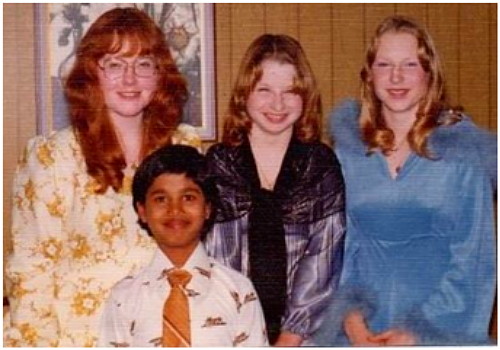 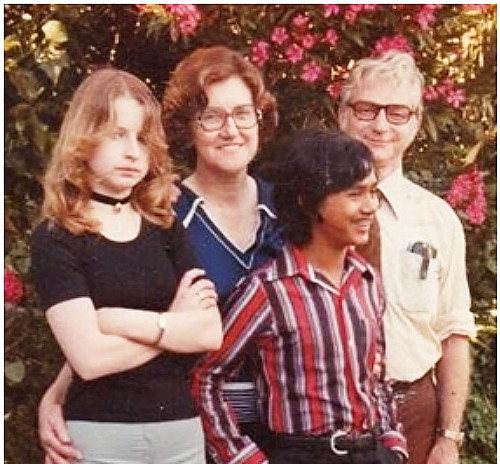 From the orphanage in Bhola, Waji was headed to Melbourne, Australia. He had been adopted by a family in Melbourne. His adoption was organised by his adoptive mother’s sister, who worked at the orphanage, making him the first Bangladeshi child to be adopted in Australia. From the orphanage in Bhola, Waji was headed to Melbourne, Australia. He had been adopted by a family in Melbourne. His adoption was organised by his adoptive mother’s sister, who worked at the orphanage, making him the first Bangladeshi child to be adopted in Australia. In later years, Waji’s mother described to him his arrival in Melbourne, when he was unable to speak a word of English. They did not share a language at that time but his mother worked out that, upon meeting his new family, he wanted to know why their car did not look as good as the other cars on the road. His mother made him an omelette for breakfast and Waji distinctly remembers how strange it seemed. Seven year-old Waji was not accustomed to the taste of salt. Back in the orphanage, he had eaten communally cooked rice, daal and sometimes, eggs and vegetables. On a good day, all the children would get milk and honey. Salt and other seasonings had not featured prominently in his diet thus far. Waji’s understanding of seasonings, in time, proved to be a valuable asset and integral to the pursuit of his passion. Cooking is a subject that he routinely circles back to during conversations. In between the stories of his life, he describes the differences between the Asian and European palates and the difficulties of cooking unfamiliar cuisine. As he seamlessly manoeuvres every dialogue into observations about food and flavour, his devotion to his trade is plain to see. 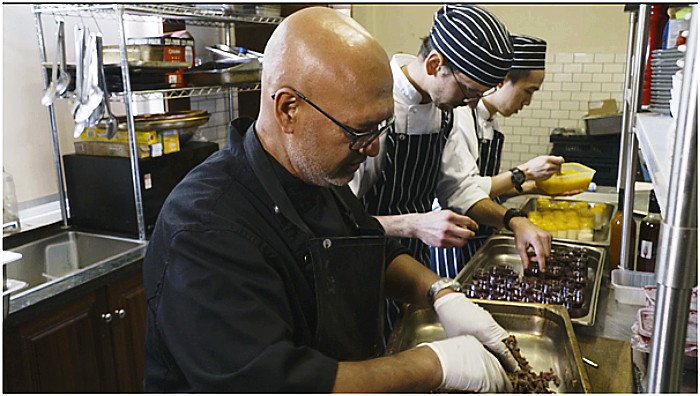 But that taste of salt is not the only memory that Waji has of his arrival to Australia. On his first night, he was taken to his own room and given his own bed. In the movies, this always looks wonderful but for Waji, this was an ordeal. He had slept with 200 other children in the orphanage. Now, he felt like a whole house had been squeezed into one room and that he had been left alone there. He had never used a blanket in the heat and humidity of his village and his new blanket gave him nightmares. His room frightened him and made him feel lonely. There were many more sentiments Waji felt. He talks about opening the fridge door and being awestruck, as he had never seen that much food before in his life. He was fascinated! He soon realised that his new family doted on him – Waji being their only son and his sisters’ only brother. He laughs about how spoilt he was in the family. By the age of 8, he was cooking and helping his mother with her catering business. For their neighbours and the community that Waji had just joined, he was a real novelty. He noticed the attention he got, as people came by just to see him. His parents had a barbecue to introduce him to everyone. At school, he had a devoted ESL (English as a Second Language) teacher and in six months, completely forgot Bangla and spoke only English. 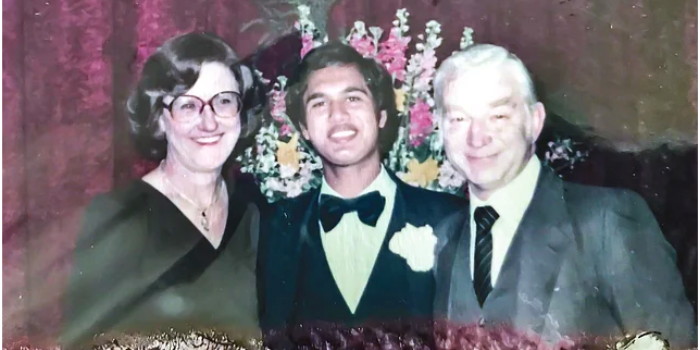 That Waji grew up surrounded by love is apparent in the affection with which he speaks about his family, especially his mother. From his parents’ shop, he used to send money to Bangladesh as a child. That money was meant to go to his family back in Manpur, but Waji later found out that it may have gone to the orphanage. He says this very matter-of-factly, perhaps not realising how much his contribution would have meant to the orphanage. Or, how much the generosity and nobility of his parents in supporting him would be cause for wonder. His parents, who have now passed away, must have inspired in Waji a desire to be of service to others. It comes as no surprise, then, when Waji speaks of his plans to help his relatives in Bangladesh – how he would like to help them start businesses or encourage them to become financially independent.
He saw his biological mother and his siblings on his first trip to Bangladesh after his adoption. An adult Waji tracked his family down, found himself in Manpur once again as a novelty, as relatives and friends from all over the village came to see him. They could not believe their eyes and repeatedly asked to see his teeth, now changed from the braces he wore in his youth. Upon his arrival in Melbourne, he had felt claustrophobic in his own room and in a reversal now, his arrival in Manpur left him suffocated from the outpouring of attention from practically all of Bhola. There was some protection in not being able to use Bangla, as it removed the obligation to speak. His family in Manpur could not help but show him off to everyone. Waji gets to the story of how he found them after digressing a little to discuss his culinary adventures in Fiji and Thailand and his observations on Thai understanding of meat. Thailand had come up because he had been talking about food in Bangladesh and he likes Bangladeshi food. Bangladeshi food had come up because he was talking about the sheer amount of sweets his family had been feeding him, not realising he was a diabetic. This was after Waji had endured horrendous plane food, which he cannot believe is as bad as it is, to fly in and out of Bangladesh. And getting to Bangladesh to see his biological mother happened because one of his sisters in Melbourne had been married to a Bangladeshi-Australian. Waji’s family in Melbourne were familiar with some of the Bangladeshi community and years ago, were invited to a wedding. At that wedding, his sister met and later married Mizan. It was Mizan, Waji’s then brother-in-law, who helped him track down his biological mother and siblings in Bangladesh. When Waji arrived in Melbourne as a child, he did not really miss his family in Bangladesh. He says that living in the orphanage had caused some disconnect anyway and he used to only see his family every few months. But whatever disconnect he felt existed, the fondness towards his Bangladeshi family is unmistakable. He was touched by their hospitality in spite of their poverty. He was moved by their generosity and love for him. He had more to say, but only after he remembered his travels in Europe, like the time spent in rural Germany near a castle and the locals mistook him to be African. He prefers to look at these things as stereotypes in the minds of others, that one can move beyond. He fondly remembers his experiences... ...with Italian food and how Italy changed the way he cooks. Waji’s menu in Hobart is known for its eclecticism and the fusion of the flavours he has brought from his travels. He makes his own spice mixes, the result of a multiplicity of his experiences and influences. His cooking mirrors all that he has tasted and the adventures that have shaped him. In a previous interview, he had referred to his family as a “bacon and eggs family” and his mother had been very offended. He laughs that he had to explain to her that he had not meant any cultural condescension towards his family but was just trying to paint a picture of his childhood. For Waji, the easiest way to know people is through food. So, of course, as soon as Waji finished school, he sought an apprenticeship to learn to be a chef. During his 4 years of apprenticeship, all the money he made was spent on food. He ate everything and tasted all the spices and flavours he could get his hands on. With his family cheering him on and supporting him every step of the way, he put his heart and soul into learning his art. When he went to Bangladesh, he was a little taken aback at the numerous demands for money. He says his relatives must have thought him very wealthy and he had to communicate to them that he has to work very hard for whatever he has. Waji’s culture shock was seeing people sitting idly with nothing to do or standing at a window, just staring at him. “I would go mad being that idle”, are the justifiable sentiments of a man who is constantly at work on mastering his craft. However, his desire to help and support his family in Bhola remains steadfast. He is still seeking ways to help them become self-reliant and establish means for them to pursue a living independently. He recognises their poverty and what it has done to them but he explains he would rather buy them a piece of land to work on or a shop to run than give in to a demand for a motorbike. Recently, Waji’s biological mother passed away and he has been unable to travel to Bangladesh due to the pandemic. Even travelling to Melbourne has become trying in the midst of border closures and lockdowns. The Tasmanian tourist industry has suffered terribly and this has had a significant impact on catering businesses, including Waji’s. When COVID restrictions had eased last year, he had visited Melbourne and he laments the poor quality of the food he ate at a local restaurant. This meticulous attention that he pays to every aspect of what he eats and cooks is only one of the many interesting things about Waji, but that is pivotal to who he is. “The best way to connect to people is to eat with them”, he says with the utmost sincerity. Eating together develops trust and gives you a sense of security, he explains. Waji’s calm demeanour and reflections reveal how, like the food he creates, he has gently brought together all the elements of his life and presented something beautiful to the world. No wonder he and the art of cooking found each other. |
This story is based on interviews with Wajiullah Spiby.
Comments:

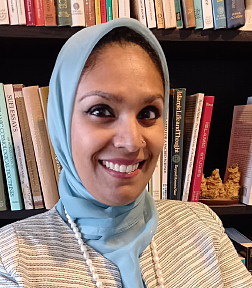
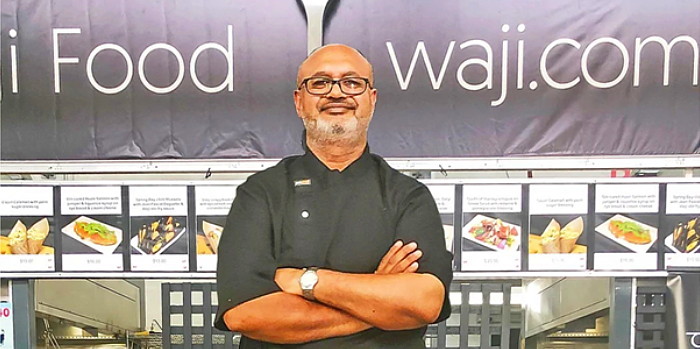
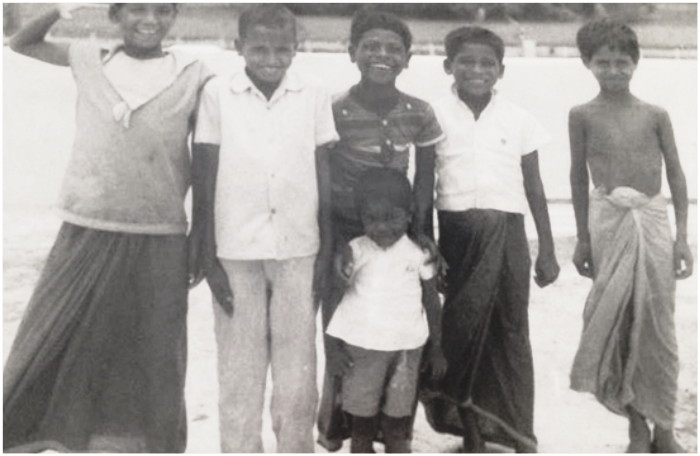
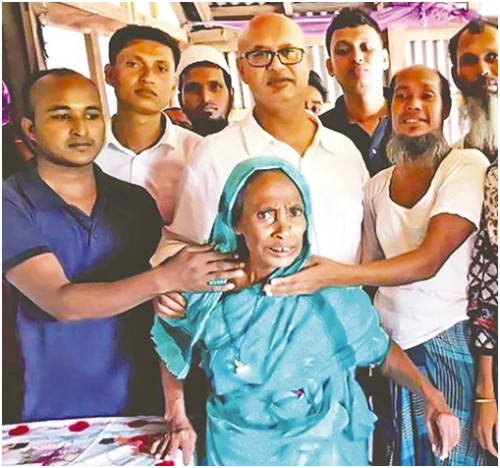
 Bangladesh Australia Disaster Relief Committee AGM 2025
Bangladesh Australia Disaster Relief Committee AGM 2025

